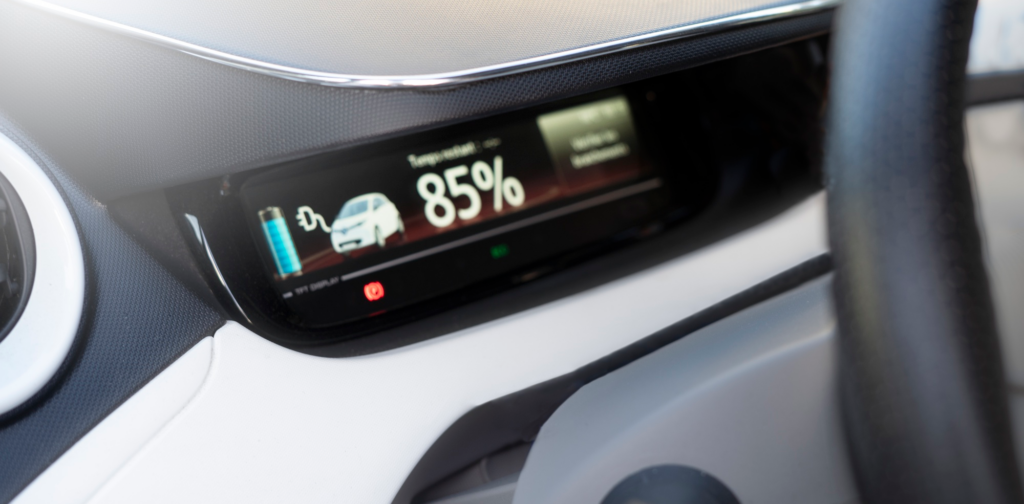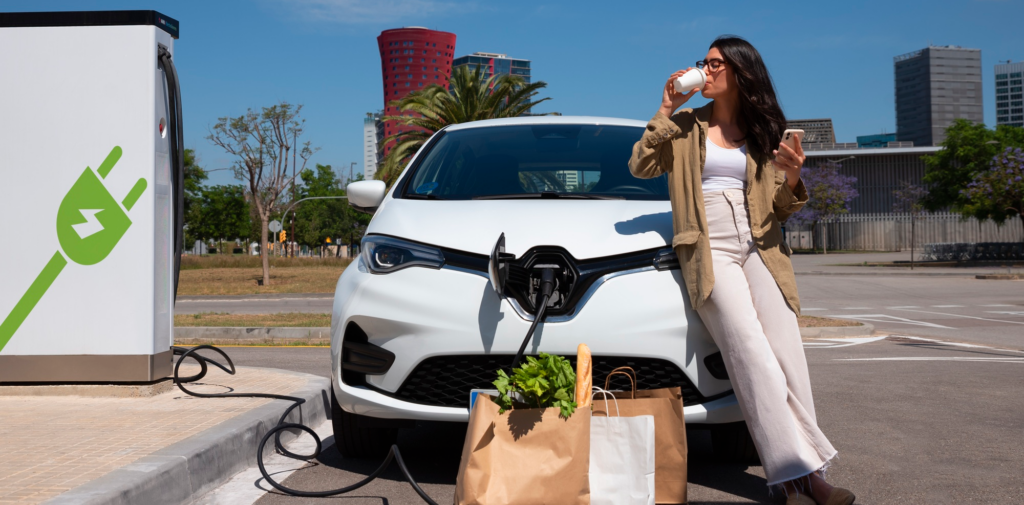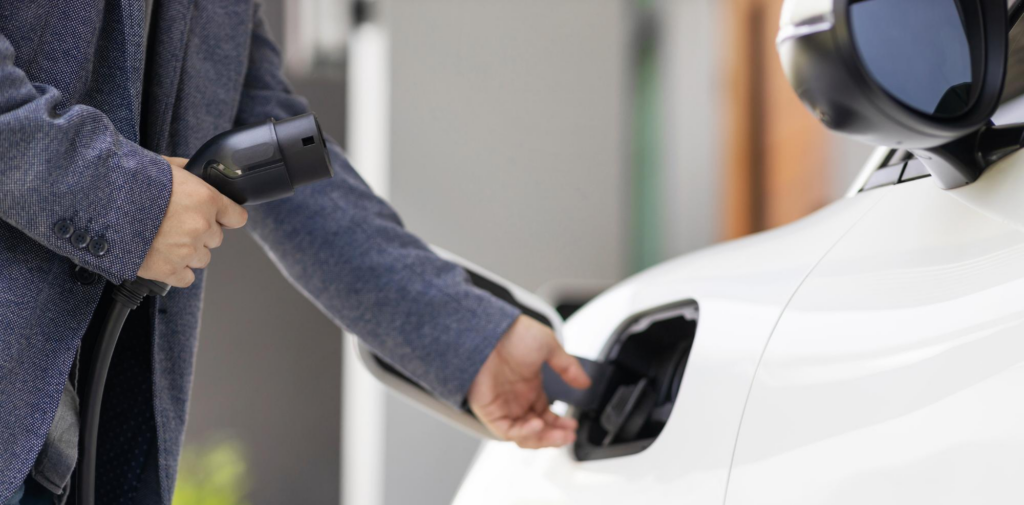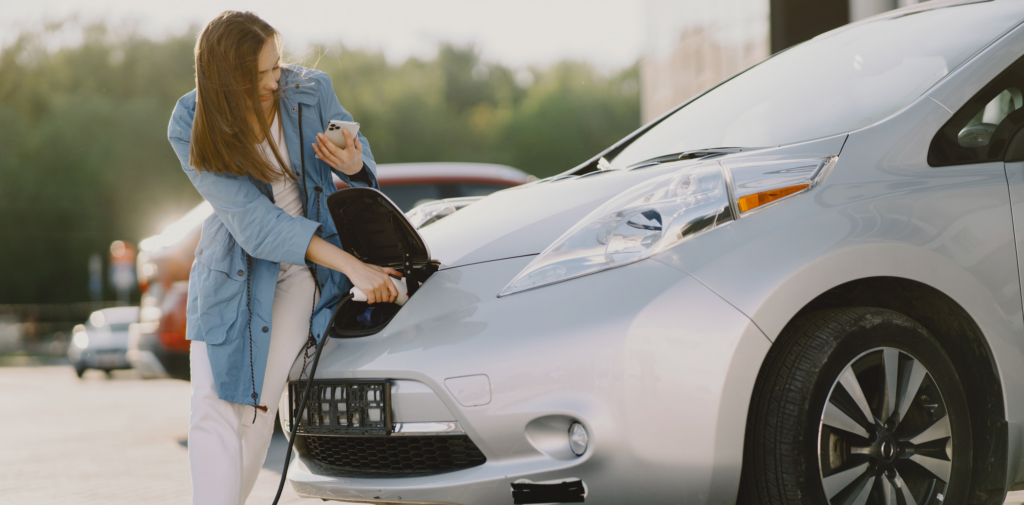Compare cheap electric car insurance
✔ Compare cheap electric car insurance quotes
✔ Over 110 insurance providers
✔ Get a quote in minutes
✔ Save up to £504*
Buying a new electric car may be beyond the financial reach of many. However, with a quarter of UK households contemplating the acquisition of an electric or hybrid vehicle within the next five years, exploring the option of a second-hand model might be a sensible choice.
Our comprehensive guide on buying a used electric car highlights the essential aspects and considerations to bear in mind during your search.
Should I Buy a Used Electric Car?
The Rise of Electric Vehicles in the UK
The electric vehicle (EV) market in the UK has seen significant growth. In 2022, 662,000 plug-in and battery electric vehicles were registered, and by the end of December 2022, there were 1.114 million licensed plug-in vehicles in the UK.
This surge in popularity means there’s an increasing number of used electric cars entering the second-hand market.


Benefits of Choosing a Used Electric Car
Electric cars are not only becoming more mainstream, but they are also expected to offer lower prices, greater choice, and better performance.
Additionally, these battery-powered vehicles are considerably cheaper to run compared to petrol and diesel cars and are more environment-friendly.
Points to Consider When Buying a Used EV
However, when considering a used electric car, it’s crucial to conduct thorough research. You should carefully inspect the car, its battery, and its paperwork. Making an informed decision can lead to a fantastic deal on a used EV.
How much can you save on your electric car insurance?
Advantages of Buying a Used Electric Car
Cost-Effectiveness of Used Electric Vehicles
The purchase price of used electric vehicles (EVs) is increasingly competitive compared to petrol and diesel cars.
You can find a used electric car for under £5,000, with popular models like the Nissan Leaf and Renault Zoe available for less than £10,000. In contrast, new models of these cars start at around £30,000.
Warranty and Tax Benefits
Many new EVs, including the Nissan Leaf and BMW i3, come with a long warranty of eight years or 100,000 miles. This often extends to second-hand buyers, depending on the vehicle’s age.


Additionally, owners of both new and used pure electric vehicles are exempt from road tax. Furthermore, drivers using their EVs for work may be eligible for additional tax breaks.
Running Costs and Performance
Research indicates that the annual running costs of an electric vehicle are, on average, £528 cheaper than those of a petrol car. This saving is due to lower fuel costs and the absence of road tax.
Moreover, EVs offer surprisingly speedy performance due to the instant power and torque of their electric motors, making them ideal for city driving.
Smoothness and Comfort
Electric vehicles are noted for their smoothness and comfort. They tend to be quieter and more refined than petrol or diesel cars, offering a more luxurious driving experience.
This is true even for older EV models, making them an attractive option for those who prefer a serene driving experience.
How much can you save on your electric car insurance?
Disadvantages of Buying a Used Electric Car
Range Anxiety and Battery Degradation
Range anxiety is a significant concern for many potential used EV buyers. Over time, EV batteries degrade, leading to a reduced travel distance on a single charge.
Many older models might only offer a range of about 100 miles or less, which can be inconvenient for regular long-distance travel.
Battery Lease and Replacement Costs
Some early EV models, like the Renault Zoe, were sold without a battery to lower the initial purchase price, meaning the battery had to be leased separately at an extra monthly cost.
It’s important to check whether the battery pack is included in the purchase price or if there will be ongoing monthly battery lease costs.


Additionally, if you own the battery, it might need replacing eventually, which could cost several thousand pounds, potentially reaching up to £10,000 for some models.
Charging Infrastructure Limitations
Used electric car drivers face the same charging infrastructure challenges as new EV buyers.
Although the network of public chargers is expanding, it’s crucial to ensure easy access to charging points or consider installing one at home.
Driving Experience
Some drivers find that electric vehicles, particularly the older, more basic models, offer a less thrilling driving experience.
They’re quieter and lack the engine noise and gear-changing aspects that some drivers enjoy.
If these elements are important to you, an EV might not yet meet your driving preferences.
How much can you save on your electric car insurance?
Are There Any Used Electric Cars to Avoid?
Consider the Age and Charging Needs
When contemplating a used electric vehicle (EV), it’s less about avoiding specific models and more about considering the age of the car.
Electric cars have been on the market for some time, and the older models may require more frequent charging.
This can be inconvenient, especially if you don’t have access to a home charging point.


Warranty Duration and Mileage Limits
Many electric cars come with an eight-year battery warranty. Hence, it might be prudent to steer clear of used models that are older than this.
Some vehicles also have warranties that expire after a certain mileage limit. It’s important to check how close the car is to this limit if it applies to the model you’re considering.
This information can be crucial in making an informed decision about your purchase.
How much can you save on your electric car insurance?
Do Electric Vehicles Hold Their Value?
Depreciation of Vehicles
Depreciation, the difference between a car’s value when bought and when sold, affects all vehicles over time, including electric vehicles (EVs). This is a universal factor in the automotive market, impacting both electric and conventional cars.
Early Electric Vehicle Value Trends
Initially, when EVs entered the market, they suffered significant value drops upon resale. This trend was largely due to the limited interest in electric cars among the general public at that time.
Improving Resale Value of EVs
However, in recent years, the situation has shifted. Electric cars are now showing a stronger ability to retain their value.


This improvement is attributed to an influx of more desirable makes and models, coupled with a growing recognition of the benefits of driving electric and hybrid vehicles.
Comparison with Petrol Cars
Comparatively, petrol cars typically retain about 40%-65% of their original purchase price after approximately three years.
Electric vehicles are increasingly aligning with these figures, although the rate of value retention can vary significantly between different EV models.
How much can you save on your electric car insurance?
Is Car Insurance More Expensive for Electric Cars?
Early Insurance Costs for EVs
In the initial phase of electric vehicles (EVs), car insurance was typically more expensive compared to equivalent petrol models.
This higher cost was due to the lack of historical data for insurers to reference. Additionally, there was uncertainty about the costs associated with repairing EVs if they encountered issues.


Recent Trends in EV Insurance Costs
However, as electric cars have gained popularity and more data on repair costs has become available, insurance costs for EVs have decreased.
In 2022, research indicated that the average insurance cost for an electric vehicle was £565, in comparison to £556 for a petrol car.
Comparing Insurance Quotes
Regardless of the type of vehicle, the key to securing a favourable deal on car insurance is to compare quotes from various insurance providers.
This approach is equally effective for electric vehicles, ensuring that you find the most competitive and suitable insurance cover.
How much can you save on your electric car insurance?
What to Look Out for When Buying a Used Electric Car
Inspection Differences Between Electric and Combustion Engine Cars
When assessing a used electric car, the process differs from that of petrol or diesel cars. For instance, there’s no oil dipstick to check the engine’s condition.
Electric vehicles have fewer moving parts than traditional combustion engines, which generally means there’s less that can go wrong.
However, it’s still important to conduct a thorough visual inspection and ensure all lights and electronics are functioning correctly.


Importance of Service History
Obtaining a full service history is crucial. This history is one of the best indicators of the car’s condition and can provide insight into how well the vehicle has been maintained.
Test Driving the Electric Vehicle
Taking the car for a test drive is particularly important, especially for those new to electric vehicles. During the test drive, pay attention to any unusual noises, bumps, or vibrations. If anything feels off, it’s wise to consider other options.
Top Tip: Charging Compatibility
If you plan on using public charging points, ensure the car is compatible with rapid chargers and can charge at a rate that meets your needs. Rapid chargers can usually top up the battery to 80% in about 20-40 minutes.
However, be mindful that charging time can vary based on the battery size, charger speed, and the car’s ability to accept electricity at different rates.
How much can you save on your electric car insurance?
Frequently asked questions
Unfortunately, there is no grant available to assist in purchasing a second-hand electric car. However, if your residence is in a flat, you may be eligible for a discount of up to £350 towards the installation of a home charging point.
For those who might find it challenging to purchase a second-hand EV (Electric Vehicle) outright, several dealers provide options like car finance or even leasing a used electric car.
It’s crucial to review the terms and conditions of any finance agreement thoroughly. This ensures you have a clear understanding of the total amount you will need to repay before gaining full ownership of the vehicle.
To check the battery in a pre-owned electric car, look for the battery status indicator on the car’s display. This feature shows the charging capacity or battery health by displaying how many bars are filled.
If you have concerns about the battery’s health, it’s a good idea to request a dealer to perform a detailed diagnostics check. This can provide a more comprehensive insight into the condition of the battery.
Servicing an electric car is quite similar to servicing a petrol or diesel car, but with fewer components to inspect and no need to change oil filters.
During a service, the following main areas are typically checked:
- Electric motor
- Battery pack
- High-voltage electric cabling
- Suspension
- Brakes
- Steering
- Wheels
- Tyres
- Lights
Despite the reduced number of tasks in servicing an electric car, or conducting an MOT, dealers might still charge the same as they would for servicing a petrol car.
Given that EV technology is relatively new, finding a local garage skilled in servicing electric cars can be challenging.
However, the number of mechanics receiving training in this area is increasing, making it easier to find qualified service providers.










